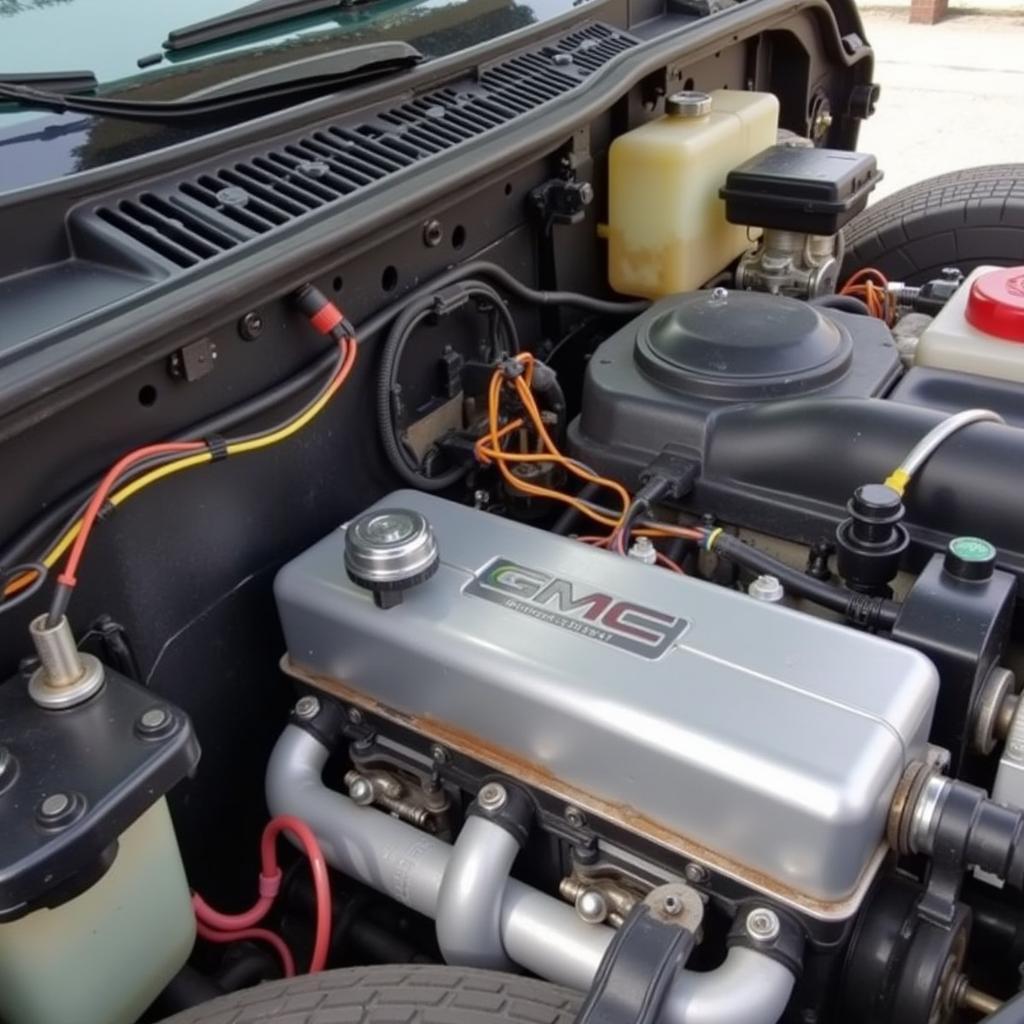Have you ever experienced getting stuck in a parking lot because your car wouldn’t start, and you suspect the anti-theft system is acting up? One of the first things that might come to mind is checking the fuse box. But wait, what is the anti-theft fuse called? Don’t worry, we’ve got you covered! This article will guide you through understanding your car’s anti-theft system and how to identify the fuse associated with it.
Understanding Your Car’s Anti-theft System
Before we dive into the specifics of the fuse, it’s crucial to have a basic understanding of how your car’s anti-theft system works. Modern vehicles often come equipped with an immobilizer system. This system prevents the engine from starting without the presence of the correct key or key fob. If there’s a fault within this system, it might disable your vehicle and potentially leave you stranded.
Identifying the Anti-theft Fuse
While the exact name of the anti-theft fuse can vary between car manufacturers and models, it’s usually related to the following components:
- Engine Control Module (ECM): The ECM is the brain of your car’s engine. The anti-theft system communicates with it to enable or disable the ignition.
- Immobilizer System: The fuse might be labeled “immobilizer,” “security,” or something similar.
- Ignition System: Since the anti-theft system directly affects the ignition, the fuse could be associated with the ignition system.
How to Locate the Anti-theft Fuse
- Consult Your Owner’s Manual: This is your best resource. The manual will provide a detailed diagram of your fuse box, clearly labeling each fuse and its function.
- Check the Fuse Box Cover: Most vehicles have the fuse box layout printed on the inside of the cover itself. Look for fuses related to the components mentioned above.
Troubleshooting Anti-theft System Issues
If you suspect a problem with your anti-theft system, it’s essential to approach it systematically.
- Check the Fuse: Once you’ve identified the anti-theft fuse, inspect it for any signs of damage or a blown fuse.
- Spare Fuse: If the fuse appears blown, replace it with a spare fuse of the same amperage.
- Professional Help: If replacing the fuse doesn’t solve the issue, it’s highly recommended to seek help from a qualified automotive electrician or your dealership.
FAQs About Car Electrical Issues
Q1: Can I drive my car with a blown anti-theft fuse?
A: It’s not recommended. While it might seem like a simple electrical component, the anti-theft fuse plays a vital role in your car’s security and engine management. Driving without it could potentially lead to further electrical problems or even leave your car vulnerable to theft.
Q2: My car remote starter stopped working, could it be a fuse issue?
A: Yes, it’s possible. The remote starter system often ties into the car’s anti-theft system. A blown fuse could be the culprit. Refer to your owner’s manual or the remote starter installation guide to locate the relevant fuse.
Q3: What are some common symptoms of a failing car battery?
A: A failing car battery can manifest in various ways, such as dim headlights, slow engine cranking, clicking sounds when turning the key, and even a warning light on your dashboard.
Remember, “A stitch in time saves nine.” Addressing electrical issues promptly and seeking professional help when needed can save you from potential headaches and costly repairs down the line.
Need More Help?
CARDIAGTECH offers a range of advanced automotive diagnostic tools that can help you pinpoint and resolve even the most complex electrical issues. For expert advice and support, connect with our team at CARDIAGTECH. We are always here to help you keep your car running smoothly.

